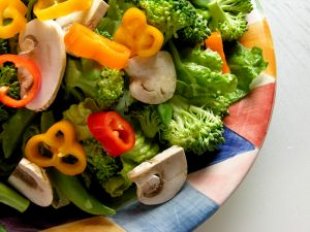Information Everywhere but Not a Drop to Drink
When it comes to wellness and health, it is easy to find online information about the perfect workout, the best foods to eat, and the best Eastern medicine practice for every ailment. The problem with all of that information is that there is an equally credible-looking source that says the exact opposite. One example, outside the scope of this blog post, is a dietary approach to weight loss. How many fad diets promoting weight loss have you heard or read about? The wide variety of opinions, all presented as definitive, cause public confusion. So let’s talk about two other areas of nutrition where debate still rages: water intake and post-workout meals.
Nutritional Myth 1
A relatively recent study, discussed in the article ‘only drink water when thirsty’, study says, in Medical News Today, concludes that people should only drink to be appropriately hydrated. Now, as someone in the health and wellness field, this immediately set off alarms. The first warning sign about this study is that conventionally, if you are thirsty, it suggests that you already have mild dehydration. It is important to remember that health and wellness is constantly changing because of better information, but it is a bad sign when a study or article suggests something running against substantiated information. Another warning sign is that the study explains the danger of overhydrating which, unless you have a medical condition that makes you prone to hyponatremia (low levels of sodium in the blood stream), or you’re intentionally water-loading for a sporting event, is extremely rare. Exaggerating the possibility of overhydrating makes the study seem less credible as well. If you’d like to double-check the information with a trusted Australian Government website, have a look at https://www.betterhealth.vic.gov.au/health/healthyliving/water-a-vital-nutrient to see the scientific consensus holds that thirst is a symptom of dehydration, and overhydration is not a realistic concern for a healthy person.
But science thrives on debate and contrary opinions, so consensus alone is not enough. In this study, results did show that when a subject had to consume a large amount of water in a short time, they had a reflex that made it hard to drink more. So here comes one of the biggest issues with any study: even with the best research practices, a person has to interpret the results in order to form their conclusion. In this case, we believe the authors should have inferred that your body has a mechanism to prevent overhydrating, but that the sensation of thirst is a separate mechanism to signal dehydration.
Full article: Medical News Today
Nutritional Myth 2
Now if we can look at just one more example, ask yourself “what kind of food should I eat before and after a workout?” You probably are not sure of the “correct” answer, having heard many different things. If you take a look at this blog from bodybuilding.com here, you will see that it suggests that you should take protein supplements before a workout, and after as well if you can. The blog author has a PhD and talks about the science of metabolizing amino acids during exercise. While amino acids are building blocks for new proteins needed for muscle growth, they contribute very little to your body’s energy needs compared to carbs, and they can be found in all kinds of regular, natural foods.
Fitness is particularly hard to get good information about, being a relatively young field (especially as it applies to the general population rather than just athletes), but there are some well-known sources. I like the American Council on Exercise’s guidelines on pre/post exercise meals here. Their advice, which is specific to your chosen exercise intensity and duration, is generally to eat a high carbohydrate snack with a little protein before a workout, and a high protein snack with some carbohydrates after the workout. The carbohydrates allow your body to stay fueled for the workout, and the protein allows the muscles to recover having the necessary amino acids to repair afterwards.
And yes, there are excellent fruit and vegetable sources of carbs and protein. Although nutrition is not as simple as tracking the ratios of carbs, proteins and fats you eat, there are free online tools out there to do this, such as Myfitnesspal.

Where We Can Help
Holistic Services Group knows that getting good information is tricky and time consuming, but we offer various seminars on the subjects of nutrition, healthy cooking and healthy eating. We aim to provide your staff with the best, most up-to-date information, as well as addressing the specific concerns of your group. With our workshops, your employees can have the knowledge and tools to effectively make positive and informed food choices.
Nutrition Seminars and Workshops
Healthy Cooking Demonstrations
Or view a full listing of our Corporate Health and Wellness Services







